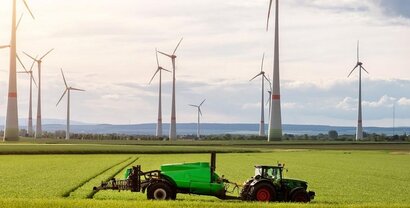
Nitric acid is a valuable industrial chemical with many important applications, such as nitrogen fertilisers and explosives, as well as common derivative products like nylon and polyurethane. However, most of the current industrial nitric acid plants are powered by fossil fuels while simultaneously consuming natural gas as a hydrogen feedstock. As a result, the industry is one of the leading emitters of greenhouse gases (GHGs). In 2021, for example, nitric acid production was responsible for 108 million tons of CO2-equivalent emissions globally (0.3 percent of the total global CO2e emissions).
Arctura is developing a novel atmospheric plasma process to reduce the energy consumed and GHGs emitted in the production of nitric acid. The new process – which uses only air, water, and electricity –has the potential to significantly lower the cost of nitric acid production. Also, if the electricity is obtained from renewables like wind and solar farms, the new process would have zero GHG emissions. Integrating this technology with renewable assets will also help to balance grid demand during off-peak periods or reduce asset curtailment, providing an important service to the renewable energy plants.
“Electrification of energy-intensive processes like the production of nitric acid is one key to reducing greenhouse gas emissions” said Arctura’s Founder and CEO, Neal Fine. “This SBIR funding will give us an opportunity to disrupt a $24 billion market. And, importantly, the new product will help to combat climate change by reducing emissions and by providing a needed ancillary service for utility-scale wind and solar farms. These objectives are central to our Company’s core mission.”
The Phase II DOE award, titled “Development of An Atmospheric Plasma Generator for Nitrogen Fixation in Air,” will be used to develop and test a prototype product.
For additional information:

